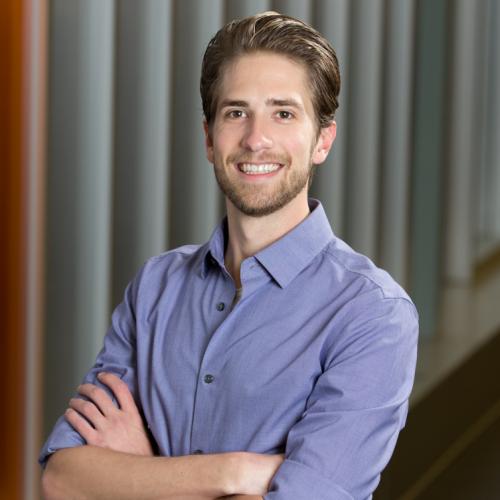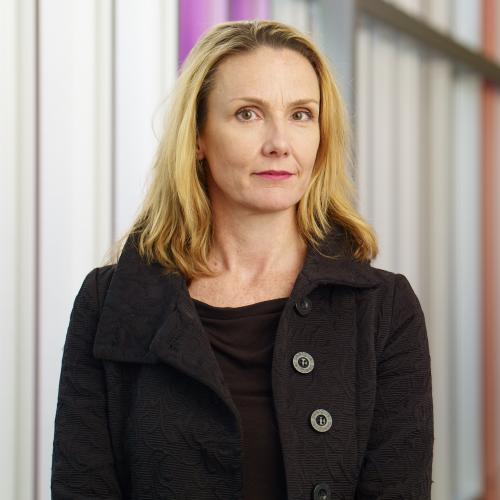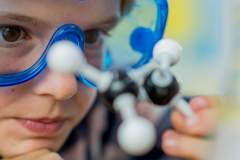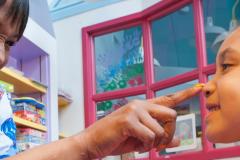How does obsessive-compulsive disorder (OCD) manifest in children? How does it impact children and their families? How can we best treat it?
Dr. Robert Selles is working to answer these questions and help children with OCD manage their symptoms so they can lead their best lives. In 2016, Dr. Robert Selles received a Scholars of Excellence Postdoctoral Fellowship to join the research team of Dr. Evelyn Stewart, the Director of the Provincial OCD clinic and research program at BC Children’s Hospital. Since then, he’s been conducting research on best treatments for pediatric OCD as well as working to set up a new treatment option in the program.
We talked to Dr. Selles about OCD and what his research means for children and families affected by this condition.


How common is OCD in kids? When do parents typically notice it?
OCD affects about two to three percent of kids and often emerges around 10 years of age. Kids typically experience unwanted and disturbing thoughts, images or urges that cause a great deal of anxiety or discomfort. These feelings drive them to try different repetitive behaviours or compulsions in order to relieve the distress and unwanted thoughts. This leads to a cycle in which the behaviors become perceived as necessary and uncontrollable and is a major reason why OCD typically does not go away on its own.
Some parents notice that their child has always had some particularities that over time become more problematic, others only notice unusual behaviors when they’ve begun to interfere with the child’s daily life, and then realize in retrospect their child had early signs of OCD. For example, a child might always want their shoes done up to a specific tightness or want a parent to say goodnight a specific number of times. These are behaviours that many young children have, but in OCD they become more intense and challenging as time goes on. A final group of children have symptoms emerge without any clear history of these issues.
How does OCD impact a child’s life?
Kids with OCD end up focusing on their symptoms so much that they pull back on other things in their lives.
For example, it may change their social interactions and make them avoid being with other kids. Some kids may struggle in school or even drop out. We have seen children stop eating because of OCD and many become depressed. On the whole, it causes a lot of distress.
OCD doesn’t just impact kids, it also impacts their families. My mentor, Dr. Stewart has investigated how the daily challenges of living with a child with OCD can deeply impact the entire family.
What are you most excited about in OCD research?
We are making great strides with behaviour therapy, which is widely viewed as a first choice treatment. In particular, we offer therapy called exposure and response prevention, which means helping kids face the things they are afraid of, while resisting the urge to engage in compulsive behaviours. For example, we may ask a kid who’s afraid of germs and getting sick to touch table tops and door handles and then not wash their hands. Or we may ask a kid who is really afraid they will do something terrible to write out that idea as if it might really happen.
Generally speaking, we’re helping them discover that the bad things they thought would happen, won’t actually happen in order to encourage them to face their fears and build their confidence in resisting urges to complete compulsions. We help kids realize that it’s okay to feel unpleasant, or to experience anxiety or distress, if it helps you push yourself towards doing something that is more valuable to you. For example, we help them remember that, yes, you could wash your hands and that anxious feeling would go away immediately, but that would mean you’re stuck in the bathroom when you could be in class with your friends.
What should parents take away from current OCD research?
Parents should know there is a lot of hope, especially when the whole family is on board. They should also know that early intervention is important.
OCD is essentially a reinforcement cycle. Kids engage in behaviours that make them feel better and this encourages them to continue the behaviours. The behaviours get stronger and more severe. If we intervene early, there is a better chance of improvement.
Parents often end up unwittingly encouraging OCD by accommodating their child’s fears – for example if a child believes everything at school is dirty they might agree to not let any object from school touch anything at home or they might provide the child with a hand-sanitizer. It’s a natural urge to soothe the child and make them feel better but it ends up reinforcing the cycle of OCD. In our programs, we focus on involving and supporting parents so they can help fight against the OCD too.
We teach families about strategies to disrupt OCD behaviour and to set goals with their child. Thanks to the work of graduate student David Schubert, we also have been supporting parents whose children resist these strategies and have temper tantrums or try to manipulate their parents in order to get relief from their distress. We’re using tools that have been shown to work with oppositional kids without OCD – ignoring problem behaviours and reinforcing good behaviours – to help parents feel more capable and help them address those resistance behaviours.
How did you become interested in studying OCD?
In some ways, it found me, which I am very grateful for, because it’s become something I’m really passionate about.
I was always interested in researching kids in some capacity. When I looked into clinical psychology in graduate school, I was interested in how families are incorporated in mental health treatment, and I ended up working with an advisor who specialized in OCD. I found it really interesting and rewarding because it can present in extremely diverse ways and we can make such a massive difference in people’s lives.
What are you researching in the field of OCD?
I’ve been collaborating with a number of OCD programs around the world and compiling a large data set to better understand effective treatment. Specifically, I’ve been looking at how a child develops the ability to recognize that they have the disorder. Is it related to their age, their gender, to other clinical disorders like ADHD? Ultimately, I want to know if being aware of the disorder changes how well they do in treatment and whether we can improve treatment.
What has been your favorite thing about working at BCCHR?
I’ve really appreciated the emphasis on my training. There is a clear plan for mentorship and access to all sorts of technical support. I also have the opportunity to connect with so many people and the flexibility to pursue my research interests. And of course the research funds help me pursue some of these things as well.
The other important benefit is access to patients. Unlike a traditional university psychology department, I am right next to BC Children’s Hospital – where the patients are – so I have the opportunity to engage with families as both a clinician and a researcher. We’re helping kids while, at the same time, collecting data, testing various iterations and methods, and trying to understand how we can make this treatment better. It’s exciting to be where we can see the immediate benefits of the research.
You moved to Vancouver for this program. What is your favorite thing about living here?
I absolutely love the mountains. Just catching a glimpse of them makes me happy. I’m an avid hiker and snowboarder and getting out to do those activities has really improved the quality of my life.




